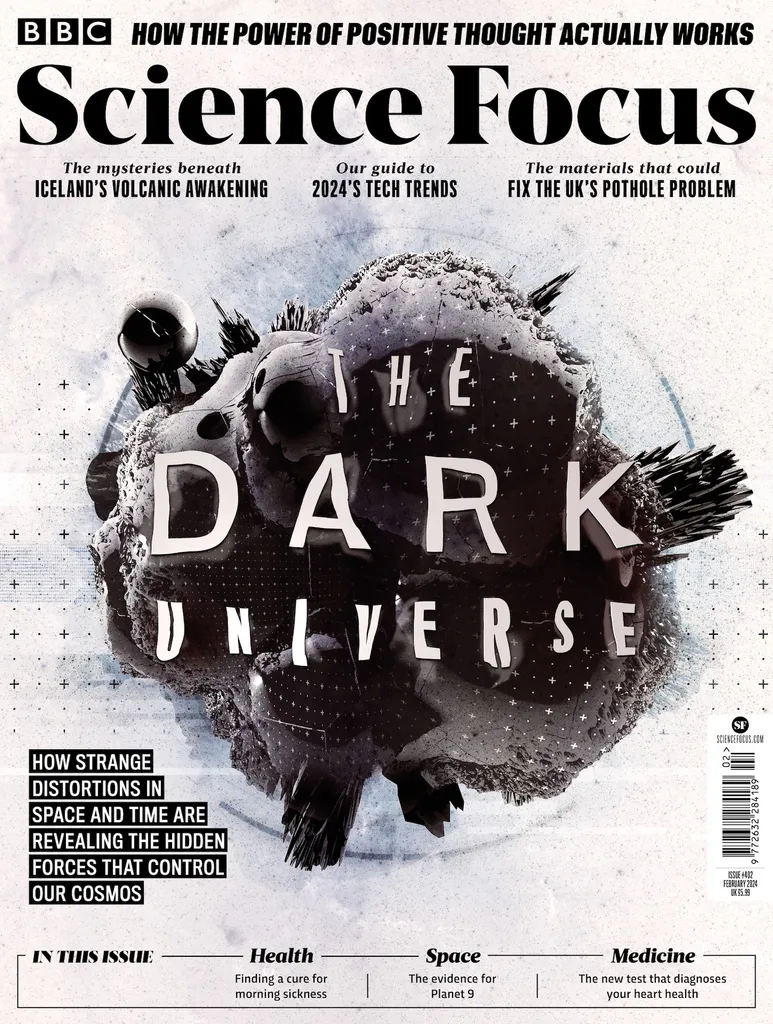
The science of manifestation
Being optimistic, believing in your own capabilities, practising affirmations, being grateful and setting clear goals can bring genuine benefits. But is manifestation pure pseudoscience, or is there something to it? We look at how the WOOP approach can actively help you navigate the journey to achieving your dreams.
Volcanic eruptions
After three years of fiery eruptions, experts are now confident that Iceland's Reykjanes Peninsula has entered a new phase of volcanic activity.
The counterintuitive cosmos
The world isn't what it seems. In this feature, we explore how science has exposed the fallacies and misconceived ideas of the heavens and Earth throughout history.
Planet Nine
Something strange is happening beyond Neptune, and it might change everything we think we know about the Solar System. Do orbital oddities reveal the existence of an undiscovered planet in our celestial neighbourhood? Or could it be something else?
Plus
- The biggest innovations from CES 2024: Each year, Vegas plays host to the Consumer Electronics Show, where the world's tech manufacturers assemble to unveil their latest developments. From transparent tech to home robots and the latest cooking gadgets, tech expert Alex Hughes takes a look at some of the highlights.
- Potholes: Britain's roads are cratered with 750,000 potholes. They can cause significant damage to vehicles and pose a danger to motorists, cyclists and pedestrians. But bacteria and self-healing asphalt could make them smooth again.
- The first lunar base: Head to the lunar south pole and take a look inside what could be the first human settlement on the Moon. Initially intended to accommodate 144 people, the modular design of the 'Lunar Habitat Masterplan' will expand and evolve with its inhabitants.
Issue 402 on sale 22 February 2024
Subscribe to BBC Science Focus Magazine
Don’t forget that BBC Science Focus is also available on all major digital platforms. We have versions for Android, Kindle Fire and Kindle e-reader, as well as an iOS app for the iPad and iPhone.